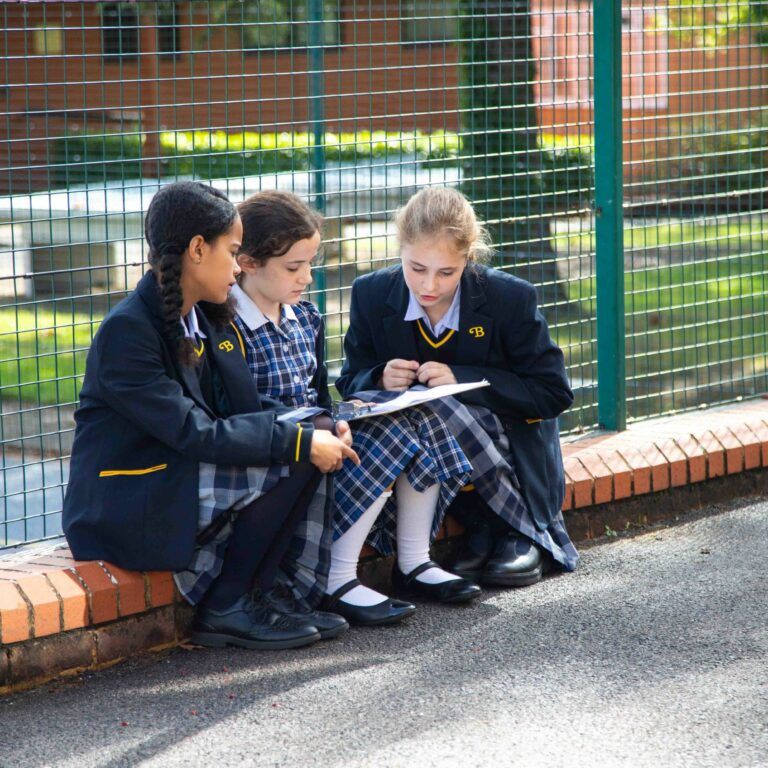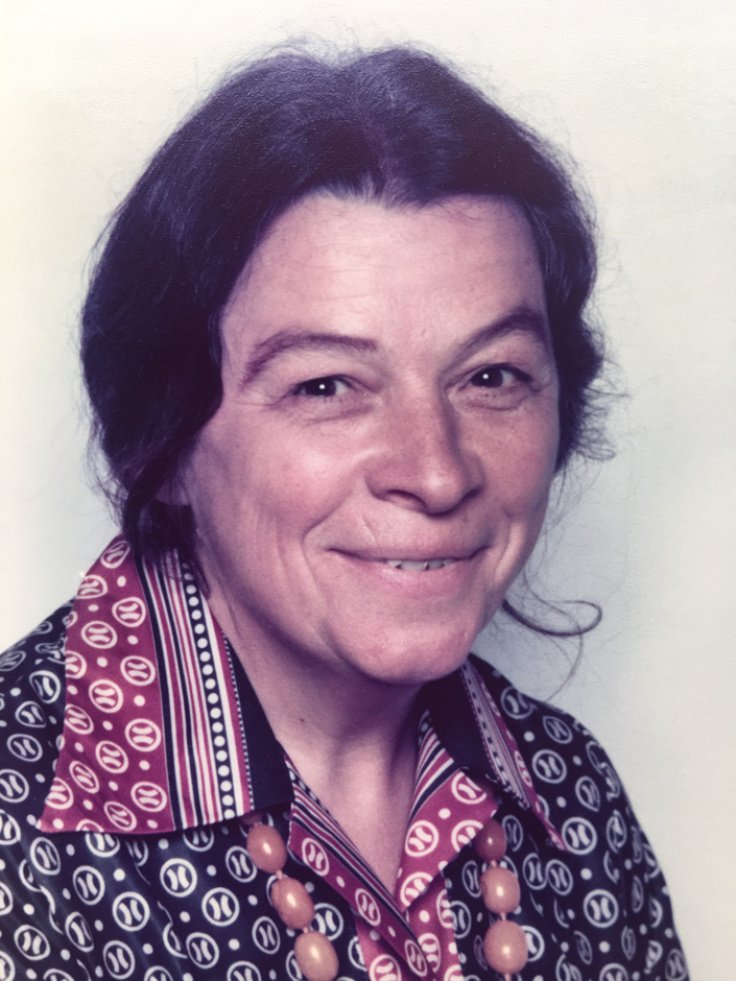It was with great sadness that we were informed that one of our previous Heads, Barbara Webb, passed away on the 6th August.
Please find below an obituary from her son Howard. Please do read it, Barbara was quite a remarkable women. She was passionate about educating girls in a single-sex environment and more specifically ensuring that Science was a strength of the school. I do believe her commitment to Burgess Hill Girls and her drive to ensure it was an outstanding, academic school is the reason we continue to be so successful today.
Her funeral will be held on 1st September at 11.30 am at Oxford crematorium. Howard has requested no flowers be sent, but invites donations to charity, at his request we recommend Buttle UK.
Liz Laybourn, Head
My Mother, Barbara Webb was born in Helensborough in 1927 to George and Cora Haydock. George was a lecturer in Philosophy at Glasgow University (having given up a career in the Church after coming to the conclusion that there was no God), and Cora a nursery school teacher.
After the outbreak of war my Grandfather decided that the banks of the Clyde were too dangerous for his young family so packed his wife, my Mother, and her brother Ralph off to South Africa. In doing this he seemed to discount the danger of this long sea voyage at a time when Atlantic convoys were having to run the gauntlet of the German U boat blockade.
My Mother spent the rest of the war in Cape Town where her Mother scraped a living by running a small nursery school in Muizenberg. After the end of the war, with a disjointed schooling that left her with few qualifications behind her, she returned to London to train as a nurse at St Mary’s Paddington. It was there that she met my Father, Les Webb. He had contracted osteomyelitis and was one of the guinea pigs being successfully treated with penicillin by Alexander Fleming.
Following his recovery, they were invited by my grandparents to return to help manage a primary school that they had set up in Somerset West, not far from Cape Town. This was expected to be a short-term project, but my grandfather was in poor health and died shortly after their arrival. Barbara and Les spent the next twenty years building up the reputation of Somerset House School, a small boarding school, that for some was a home from home and that is still held in great affection by the many that passed through its doors. Whilst my Father played the role of inspirational teacher, my Mother, the titular “Matron” focused on making sure the school ran smoothly and managing parents. During this time, she enrolled at the University of South Africa (the equivalent of the Open University) from which she was awarded a BA in history, something for which she felt very proud given her disrupted early education. With this qualification behind her she started her new career as a history teacher.
The South African interlude was intended to be temporary but lasted over twenty years. By the beginning of the seventies it looked like the dream of returning to the UK was about to be fulfilled. Arrangements had been made for the School to be bought by a charitable company that would continue the legacy that had been created. The school continues to thrive. Barbara and Les had bought a property near Oxford where they planned to settle. Before this could happen, my father died suddenly leaving my Mother to start a new life alone with her youngest daughter Kate, only 4 years old.
Her first job was as a history teacher at Bicester comprehensive school. There she railed against the requirements of a centrally imposed curriculum. She felt great empathy for the sons and daughters of local farmers and from the nearby RAF base, who had little enthusiasm for eskimo history or culture. She was greatly relieved when she successfully applied for the post of deputy headmistress at Overstone School, a PNEU school for girls near Northampton.
Barbara was a strong advocate of single sex schools for girls. She believed that to achieve their full potential, particularly in subject areas like maths and science, it was important for them to be taught and allowed to develop apart from boys, and thus avoid the implicit biases and easy compromises of co-educational schools.
After four years as deputy head of Overstone School she was appointed Headmistress of Burgess Hill School for Girls, another PNEU school, in 1979 where she remained until her retirement in 1992. Under her stewardship the school expanded and academic facilities improved. It became one of the most successful private schools in Sussex, consistently ranking highly in the newly introduced league tables.
She enjoyed a long and happy retirement, first in Ryde on the Isle of Wight, where she indulged her passion for painting, mainly in watercolour but also in oil, then in Stanton St John in Oxfordshire.
Her last years were spent at the Old Vicarage retirement home in Moulsford where her mind remained intact while her body became increasing weak and fragile.
She is survived by myself, daughters Amanda and Kate, and her grandchildren David William, Jamie, Iona and Tom.
Howard Webb



